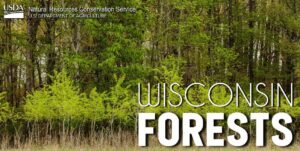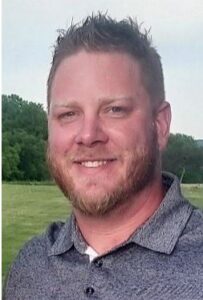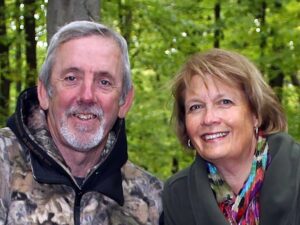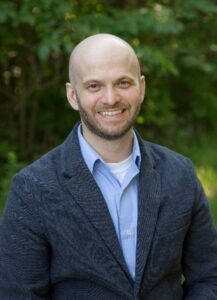
Scott Lyon is the new leader of the Forest Products Services team.
The new year started with Scott Lyon taking over the helm of the Forest Products Services team. As the team leader, Scott will lead, direct and administer all policy, personnel and budget activities of the Forest Products Services Program. Scott will continue to work out of the Green Bay Service Center.
For the last nine years, he has worked as a forest products specialist with the DNR, helping industry partners improve processes, source wood products materials, utilize urban wood and providing training and assistance to companies and individuals. He previously worked in wood products sales and manufacturing domestically and internationally. Scott earned a bachelor’s degree in wood products business and marketing from Penn State and a master’s degree in forest products from Virginia Tech with an emphasis in international marketing. Scott recently completed the Leadership Academy training within the agency. As a result of his professional network, his connections span the geography of the U.S. and even reach internationally. In 2018, he was identified by the Woodworking Network on the “Woodworking Industry 40 Under 40” list as an innovator and relationship builder.
He currently serves on the Lake States Lumber Association as a board member of the Education Committee. He was also recently elected secretary of the Great Lakes Kiln Drying Association and secretary of the Northeast-Midwest State Foresters Alliance’s Forest Markets and Utilization Committee.
Scott lives in Green Bay with his wife and their new baby boy and their dogs. Scott’s hobbies include hunting, fishing, hiking, paddling and traveling to visit U.S. national parks and battlefields.
Previously, Collin Buntrock served as the program’s team leader. Collin left the DNR in August to join the U.S. Forest Service as a wood innovations specialist.


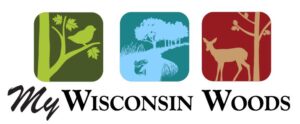
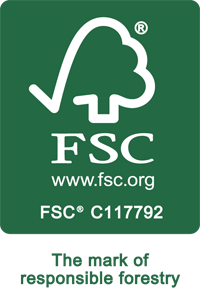
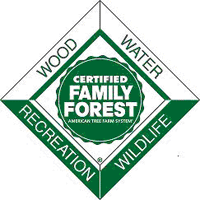 One of the most significant advantages of the MFL Certified Group is its accessibility to forest certification for participating “Group Members.” Many of the certification requirements are covered through how the MFL program is implemented and administered. For example, the two most common paths for landowners to enter the MFL Certified Group are the MFL application and the MFL transfer form. Both paths require prospective Group Members to acknowledge and accept the American Tree Farm System® and Forest Stewardship Council® standards and the MFL Certified Group rules.
One of the most significant advantages of the MFL Certified Group is its accessibility to forest certification for participating “Group Members.” Many of the certification requirements are covered through how the MFL program is implemented and administered. For example, the two most common paths for landowners to enter the MFL Certified Group are the MFL application and the MFL transfer form. Both paths require prospective Group Members to acknowledge and accept the American Tree Farm System® and Forest Stewardship Council® standards and the MFL Certified Group rules.